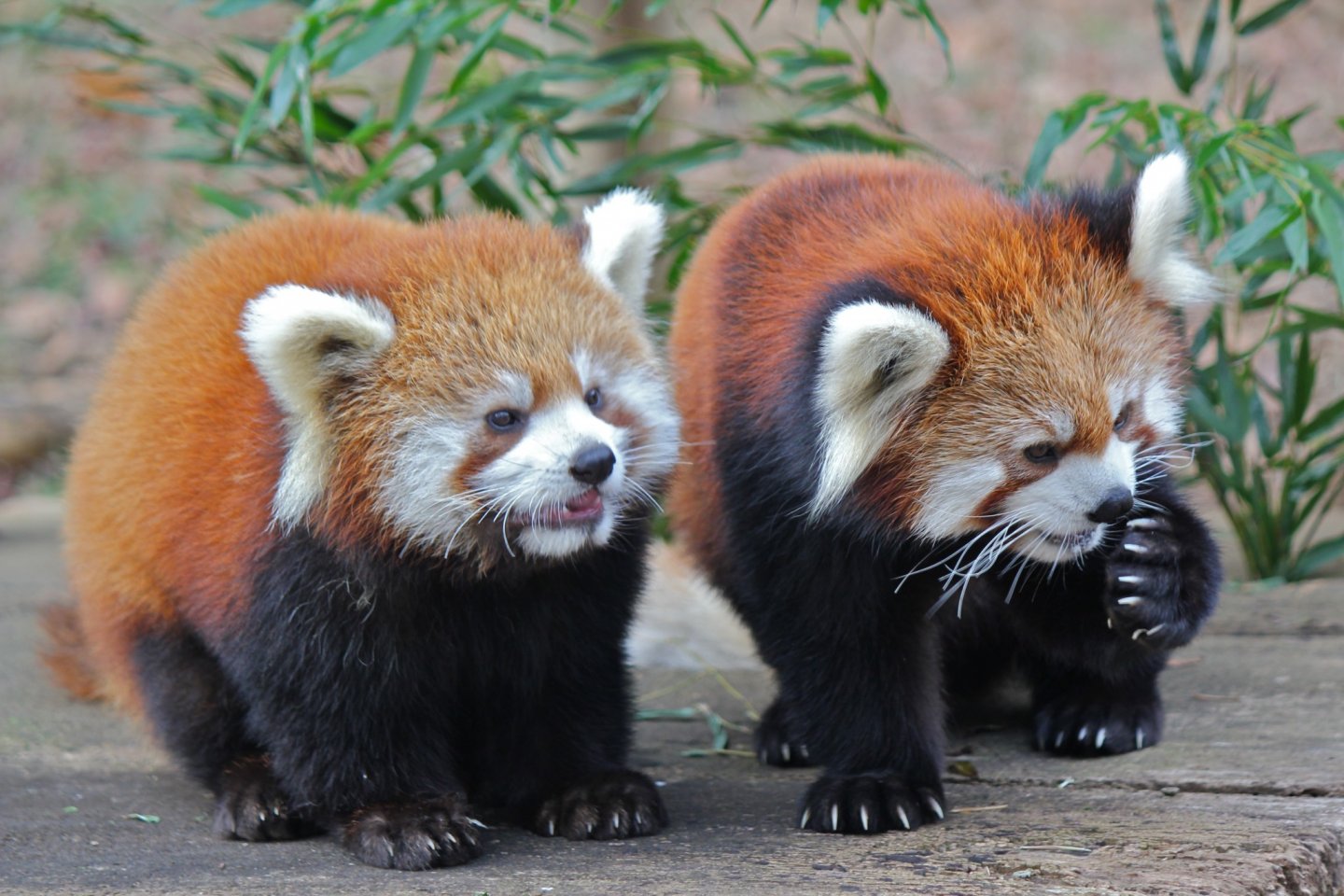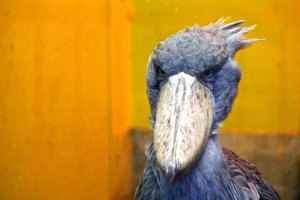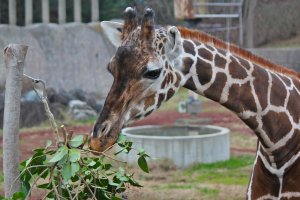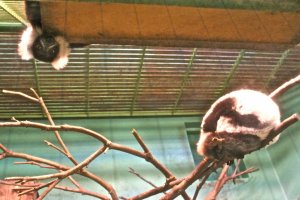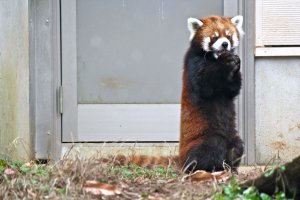My first visit to a zoo in Japan, and boy was my grin ear to ear throughout the day! Chiba Zoological Park is located in the Greater Tokyo area, specifically in the capital of Chiba Prefecture, Chiba City. It is one of the more popular attractions in Chiba and because 6% of the prefecture’s total land area is designated as Natural Parks, the vast area allows Chiba Zoological Park to provide a spacious home for our furry friends. Let’s take a peek into their habitats and watch their sweet expressions.
Chiba Zoological Park is comprised of seven zones, all easily identifiable once you find yourself standing in the heart of it all. Sometimes maps can be quite deceiving and overwhelming (if you’ve been to the greatest zoo in the United States, San Diego Zoo in California, you know what I mean!). With unexpected hikes and trails, you may not even get to see everything in a day. But, at Chiba Zoo each zone is well organized, clearly marked in primary colors, large enough to recreate natural habitats, yet small enough to see everything on the same visit.

I would recommend starting at the Zoological Hall. Easily accessed from the Main Gate, this pavilion houses the Information Desk. Be sure to pick up the Guide Map and determine the feeding times for the animals. If you can plan your day to include feeding schedules, you’ll get the most out of your visit. You’ll find the animals well alert and zookeepers are available for questions. The bonus? Awesome photographs of your furry favorites up close and personal! In addition to the Info desk, Zoological Hall focuses on various species that live in tropical rainforests. So, be sure to stop by the nocturnal animals, marmosets, and tropical birds. Keep your eye out on Linnaeus's Two-Toed Sloths!

The Small Animals Zone in the dark orange section is the home to the zoo’s mascot, Futa, the red panda. Scientifically known as Ailurus fulgens, which literally means ‘fire-coloured cat,’ you’ll constantly hear “kawaii” when visiting the eight red pandas on site. Their names are Futa, Chichi, Meimei, Meita, Kuta, Mai, Mii, and Genta. Born on July 5, 2003, Futa became a visitor attraction and a television celebrity in 2005 for his ability to stand upright on his hind feet for about ten seconds at a time. During my visit, Futa was only in the mood to munch on the leaves during feeding time, but his son Kuta showed off his upright skills. How can you distinguish who is who? Futa has the pointiest ears and the shortest tail of all. Meimei and Meita eat with their left hands. Kuta loves to eat throughout the day, and Genta loves to climb and play in the rain. Finally, beavers and otters are just around the corner and can be observed through glass partitions.

In the Steppe Zone, you’ll find elephants, giraffes, zebras and other herbivores (animals that only eat plants) taking leisurely walks in anticipation of receiving visitors. I spent a lot of time with Satsuki the Giraffe. Satsuki is a 16-year old female with a beautiful reticulated coat. She lives with a male giraffe named Youta, who was resting behind the scenes. Satsuki has a graceful way about her as she strolls, browses, and eats. Her lashes are long and beautiful to protect from debris falling from trees. She’s so photogenic! Just across from Satsuki home is the grassland setting accommodating a few South African Cranes, ostrich, and meerkats.

The Children’s Zoo is a petting zoo designed to stimulate visitors’ interest in wildlife through direct or close contact. Once through the gates to the barnyards, you can pet the goats and sheep. In 2015, the Zodiac animal of the year is the sheep, so it’s a great photo opportunity! Just on the other side, you can meet Yae-chan, Hime-chan, and Judy, the all-white female horses. Say hello to the Capybara, the world’s largest rodent species, and watch the penguins from Peru and Chile swim in excitement just before feeding time. Not only is the Children’s Zoo a great place to get acquainted with these domestic animals, you’ll find yourself amazed with the zookeepers. There’s a great diagram of “A Day in the Life of a Zookeeper” which gives great insight on what their daily duties consist of and the love and patience it requires caring for the animals.

The last three zones of the zoo are: Monkey Zone, Ancestors of Domestic Animals Zone, and Avian and Aquatic Zone. During winter, you will find that most of the monkeys are swinging from trees behind the glass to keep warm. The Lemurs are social and energetic, while the exotic Mandrills are shy and reclusive primates. The reindeer were the main attraction in December since Santa was coming to town. But, you definitely won’t miss seeing the Bison due to their massive structures. Observe the Sea Lions swim laps through the aquatic glass, or visit the observation deck to have your chance at feeding them directly from the small step-out platform. Lastly, the Shoe-billed Stork also known as “Hashibirokou ハシビロコウ” in Japanese, has a unique prehistoric look. Its appearance is a cross between a pelican, eagle, and flamingo; its eyes are so mysterious. The Hashibirokou is a silent and solitary bird, so I recommend saving this visit for last for a better view in the softly lit enclosure.
A visit to Chiba Zoological Park is a great way to develop a connection to the animals, get more educated, and understand the need to save our environment.
By car, a large parking area is available at 500yen between the hours of 9:00 am - 5:00 pm.
